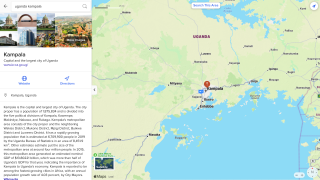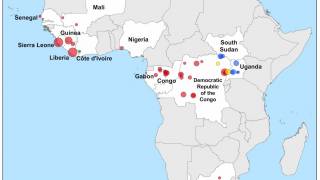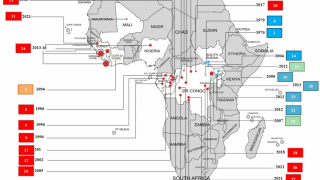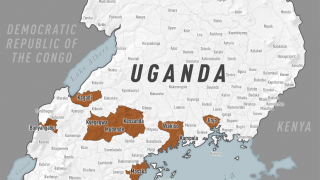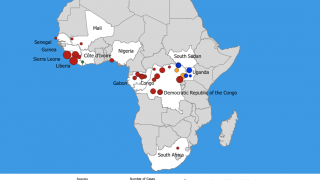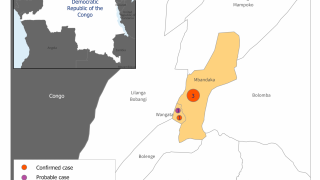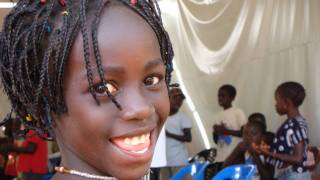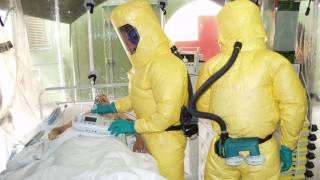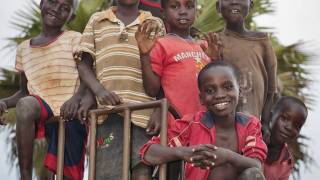Ebola Virus Outbreak in the Congo Kills 17

A new outbreak of Ebola virus disease (EVD) in Bikoro in Equateur Province of the Democratic Republic of the Congo (DRC) was declared on May 8, 2018.
This is DRC’s 9th outbreak of EVD since the discovery of the virus in the country in 1976.
Bikoro is situated on the shores of Lake Tumba in the north-western part of the DRC. In the past 5 weeks, there have been 21 suspected viral hemorrhagic fever cases reported, including 17 deaths.
The average EVD case fatality rate is around 50%.
The health facilities in Bikoro have very limited functionality and rely on international organizations to provide supplies that frequently stock out.
The WHO released US $1 million from its Contingency Fund for Emergencies to support response activities for the next three months with the goal of stopping the spread of Ebola to surrounding provinces and countries.
“We know that addressing this outbreak will require a comprehensive and coordinated response. WHO will work closely with health authorities and partners to support the national response,” said Dr. Matshidiso Moeti, the WHO Regional Director for Africa.
The last Ebola outbreak in the Democratic Republic of the Congo occurred in 2017 in Likati Health Zone, Bas Uele Province, in the northern part of the country and was quickly contained thanks to joint efforts by the Government of DRC, WHO, and many different partners.
An effective response to the 2017 EVD outbreak was achieved through the timely alert by local authorities of suspect cases, immediate testing of blood samples due to strengthened national laboratory capacity, the early announcement of the outbreak by the government, rapid response activities by local and national health authorities with the robust support of international partners, and speedy access to flexible funding.
The Ebola virus causes an acute, serious illness which is often fatal if untreated. The virus is transmitted to people from wild animals and spreads in the human population through human-to-human transmission.
Researchers recently compared the EBOV-Makona isolates to findings from macaques infected with the original EBOV-Mayinga strain from 1976. They determined that EBOV-Makona is less virulent than EBOV-Mayinga.
Vaccination against Ebola virus disease is a tool that may limit disease transmission and deaths in future outbreaks.
There were several Ebola virus vaccine candidates developed during the 2013–16 Africa outbreak.
These vaccines were reported in a previous study to be well tolerated and immunogenic.
However, health officials questioned the longevity of immune responses induced by these Ebola virus vaccines.
A team of researchers has now reported that one vaccine protected people from the Ebola virus for 2 years after immunization.
** Schedule your travel vaccine appointment today **
In 2014, Merck partnered with NewLink Genetics Corporation in an exclusive worldwide license agreement to research, develop, manufacture, and distribute NewLink's investigational rVSV-EBOV (Ebola) vaccine candidate.
rVSV-ZEBOV is a recombinant, replication-competent vesicular stomatitis virus-based candidate vaccine expressing a surface glycoprotein of Zaire Ebolavirus.
Our Trust Standards: Medical Advisory Committee



